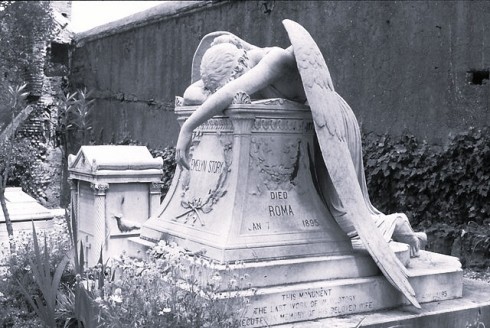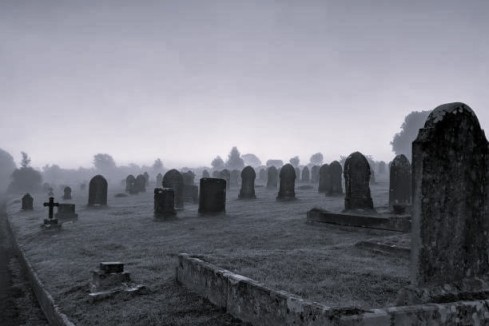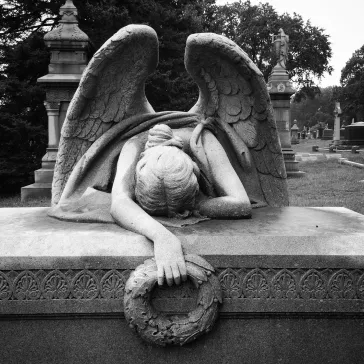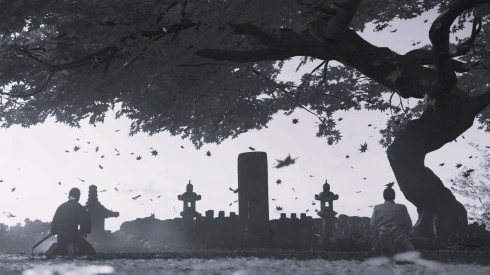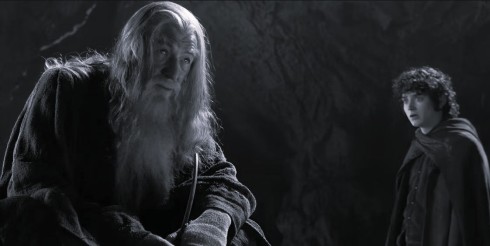Here’s a fact about yours truly you may not know: My writing career began at a metropolitan newspaper … as an obituary writer. I was 18, just starting out in college, and was recruited by the instructor of my Mass Communications class.
I stayed at this job for more than three years while I went to school. Once I graduated, I went into the world of marketing and advertising, where I have largely remained. Well, at my day job recently, I wrote an obituary for a prior employee who had passed away. For a moment, I dusted off that skillset of where I started out as a writer. It was a sad duty, but one I accepted, for reasons that I will get into later in this post.
While this was all on my mind, I wanted to put down in words some of the things I learned in this early role, why I ultimately left it, and why I think that obituaries and funeral services, in general, are important.
Life and Death in the Obit Department
For the most part, I was just a writer at a desk, working on a computer like everyone else, but there were additional elements that made the job emotionally challenging. We had a random number of obituaries that would come in each day, and this job taught me about deadlines. Do whatever you need to do, just make sure your copy is in by 3:00.
We would verify all the elements of an obituary with the funeral home, often just the spelling of a name that looked off, or a birthday if the one listed on the intake form didn’t match up, things like that. Most of the time, we would just call up the funeral home and speak to one of their representatives, but sometimes we would need to contact the family.
Understand that these were people who had lost a loved one a day or two prior to this call, or even that same day. They were often confused, angry and still trying to wrap their head around their loss, so we had to be very gentle with them. While we had to remain professional, everyone understood that a dose of empathy and understanding could go a long way.
Perhaps the most heartbreaking part was when they would show up to the office to deliver a photo of their loved one. They might even look fine and composed when they walked through the door. It was the moment that they handed the photo over that they almost always started crying. That act was what brought the realization of their grief to the forefront for them. It made the loss real. We had a special side room with a box of tissues and two chairs to give them space to compose themselves. I must’ve seen this scene play out dozens of times during my tenure there.
It wasn’t all bad, however. Because we dealt with dozens of names per day, there were times we started to see emerging trends in when a person was born and the theme of their name. For instance, from about 1908 to the early 1920s, it became popular to name girls after precious stones. Pearl, Emerald, Opal, and so forth. My great-grandmother, who was born in 1911, was named Ruby.
We also determined that the average age of the incoming obituaries was around 77, which was skewed every once in a while by a younger person, usually a teenager, who tragically died in a car wreck or a similar accident.
Of course there were exceptions.
Why I Stopped
Much of what I learned about journalism in those early days drove home the idea of professional detachment, of learning and reporting the facts without getting too close as that might harm your objectivity. That wasn’t always easy when you were dealing with grieving families on a daily basis. Even when they would sometimes call up the office and yell and scream at us for getting something wrong (whether it was actually wrong or not), I knew that was just their grief talking. I still had a job to do, and I couldn’t get too wrapped up in any one case or else I simply wouldn’t be able to function in that space.
As the saying goes, it was bound to happen, and one day it did. I received an obituary for an eight-year-old boy. Any time I received an obit in my queue that was in the single digits, it warranted a second look, just to make sure that neither the family nor the funeral home had left out a digit.
This one came with the photo, an Olan Mills portrait of the kid. And let me tell you, this photo was so good that it looked like one that might come with a wallet or a blank picture frame. He had a big smile on his face like he was about to burst out laughing, a smile that was reflected in his eyes. He just looked so full of life. I was immediately saddened just by seeing this boy who should’ve still been alive, but wasn’t. My professional detachment took a major hit. All through the day, I was haunted by the thought of this boy. Often, the cause of death wasn’t reported to us, so I never found out what had taken him.
As I worked through this obituary, I found that there was some inconsistency in the information that was provided. For the life of me, I don’t remember what it was, perhaps a family member’s name that looked misspelled or a mismatch between the day of the week for services and the day of the month. I called the funeral home, but no one picked up. Standard procedure was to then call the family. This boy had lived with his family in Alaska, so I dialed the number.
This was long enough ago that folks still had answering machines. Well, guess whose voice greeted me, inviting me to leave my name and number after the beep? I sat there at my desk, looking down at his photo while that boy’s voice spoke to me on the phone, and his voice exactly matched his photo. My detachment shattered at that point. I can’t remember now if I even left a message. I likely did, but it was suddenly my turn to use the side room to try to compose myself.
I never looked at the job the same way again. Sometimes in the hustle to meet deadlines, the names and dates and associations all blurred together. Sometimes you stopped seeing them as people and viewed them as just line items on a list, as tasks that needed to be completed. This little boy stopped me in my tracks, giving me a sharp reminder that each name was attached to a family that was morning their loss. But how could something as simple as an obituary encapsulate the fullness and nuance of someone’s life? The truth was it couldn’t.
It wouldn’t.
It shouldn’t.
I limped along in this job for another few months, but I knew I was done. I went to work for a local phone company, and while there were a few opportunities for me to come back to the obit department along the way, I never did.
Why They Are Important
Obituaries may be a flawed and limited way to mark someone’s passing, but time and reflection have changed my attitudes toward them. The same goes with funerals and memorial services. They are sad affairs, of course, but they help us frame the loss in our minds when everything seems in chaos. They are a necessary step to help us mourn and begin to heal.
When I said earlier that I hadn’t written an obituary in a while, that wasn’t precisely true. What I meant was a formal obituary, one where I didn’t know the individual personally. The fact is that I have been writing obituaries of a kind right here on this blog, though they are a far cry from what I did at the newspaper. In these, my detachment had completely gone out the airlock, and rightfully so. These were people that I loved, that I still love, whose loss devastated me, and I still wrestle with their loss. (You can find them here, here, and here.)
Obituaries, like funerals, are for the living. While they can help us get back on the proverbial horse, they have another function, one that I think is the most important: It’s how we remember them. When someone is gone, that’s one of the greatest honors that one human can do for another — simply to remember them fondly.
A Note On Empathy
Of course, I couldn’t let a heavy topic like this go by without some sort of geeky reference, so here it is. In The Lord of the Rings, Gandalf was an angelic being known as a maiar.Other powerful figures in the story, such as Saruman and Sauron, were part of this same group. Each of the maiar were at some point apprenticed to one of the valar, much more powerful beings that were effectively gods. In Gandalf’s case, he had served Nienna, the vala whose portfolio was grief and sadness. She continually wept for all the pain in Arda, even for things that had not yet come to pass. It’s thought that the reason Gandalf understood empathy and pity so well was because of this affiliation.
With that in mind, I’m a big proponent of the adage that we should always be kind to people because we never know what war they’re secretly fighting that we know nothing about. Our friends, our family, our co-workers may be going through some seriously emotional stuff, and we may never be aware of it. Perhaps a small kindness from you is what helps someone who is struggling to get through their day. Having been in various states of mourning for more than a year now, I know this to be true.
Yes, it’s easy to be cynical about this, especially with all that is going on around us, and it seems like it’s everyone for themselves. I’ve noticed a quote from Elon Musk that’s been floating around on Twitter these days. There are a few variations, but they all more or less come down to this:
“The fundamental weakness of Western civilization is empathy.”
I’m not sure that I could disagree with this statement more. I think that it’s a lack of empathy that is the root cause of much of our suffering, and the overwhelming majority of our problems. Our worst vices, our inhumanity to each other, all stem from a lack of empathy. So, in a world where we could choose to have more or less of it, I would choose more every time.
I think that’s what makes us fundamentally human.
Thanks for reading.
